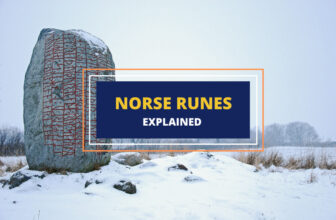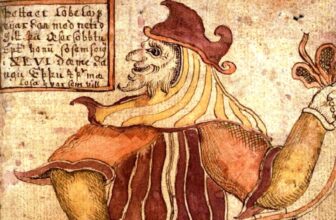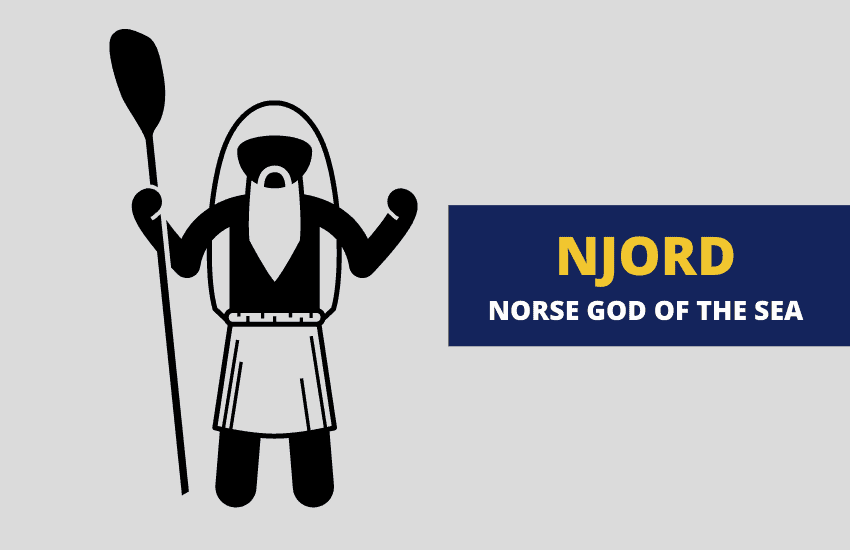
Table of Contents
Njord is one of a few Norse gods and beings associated with the sea and wind, and was an important deity, with widespread worship among the Norse people. However, the surviving myths about Njord are scarce and he doesn’t feature in many myths.
Who is Njord?
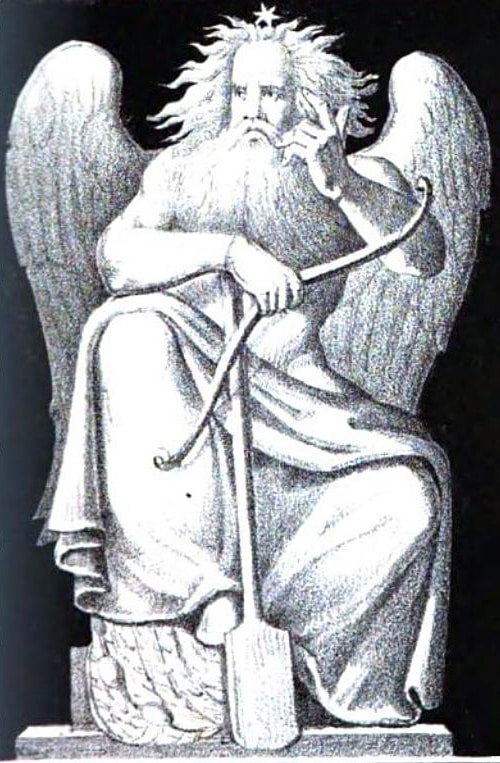
Njord, or Njörðr, is the father of two of the more famous and beloved Nordic deities – Freyja and Freyr. Njord’s consort with whom he had his children is his unnamed sister, possibly Nerthus or another goddess.
Njord is a god of the sea, seafaring, fishing, marine winds, wealth, and the seemingly unrelated crop fertility. As such, he was one of the favorite gods of seafarers and Vikings. In fact, those who got rich from raiding were called “as rich as Njord.”
But to truly understand Njord and his story we must understand who the Vanir gods are.
Who are the Vanir Gods?
Njord was one amongst the Vanir gods, a group of lesser-known Norse deities who lived in Vanaheim. For a long time the Vanir gods were strictly Scandinavian deities, while most Norse gods and mythological figures were worshipped all across Northern Europe, from the ancient Germanic tribes to the northern edges of Scandinavia.
It’s also worth noting that the Vanir gods were considerably more peaceful than the war-like Æsir. Njord, Freyr, and Freyja were all fertility deities who were loved by farmers and other ordinary and peaceful folk. Even though Njord was worshipped by sea raiders and vikings, he was still worshipped as a fertility deity.
The main Vanir pantheon consists of three deities – Njord and his two children, the twins Freyr and Freyja. Some scholars believe that there were other Vanir gods as well but written accounts about them simply didn’t survive through the ages.
Another theory is that Njord, Freyr, and Freyja were just other names for the more common Æsir gods. Njord is often mentioned as an alternative of Odin even though the two are gods of different things and Freyja is often theorized as being another name of Odin’s wife Frigg because both of them are versions of the ancient Germanic goddess Frija. Freyja’s often missing husband Óðr is also theorized to be a version of Odin because of how similar their names are.
Whatever the case, latter authors of Norse myths and legends wrote about the Vanir and Æsir gods as being combined, so Njord, Freyr, and Freyja feature in many myths alongside Odin, Frigg, and the rest of the Æsir pantheon.
And the beginning of that merger of the pantheons began like most things in Norse mythology – with a war.
Njord in the Æsir vs. Vanir War
The great war between the Æsir and the Vanir is said to have started because the Vanir got fed up with the Æsir’s transgressions against them. In essence, the otherwise peaceful Vanir deities got tired of turning the other cheek to the Germanic Æsir trouble-makers.
The war lasted for a long time and with no clear winner in sight, the two pantheons called for a truce. Each side sent hostages to negotiate the peace treaty. The Vanir sent their most “outstanding men” Njord and Freyr while the Æsir sent Hœnir and the god of wisdom Mimir.
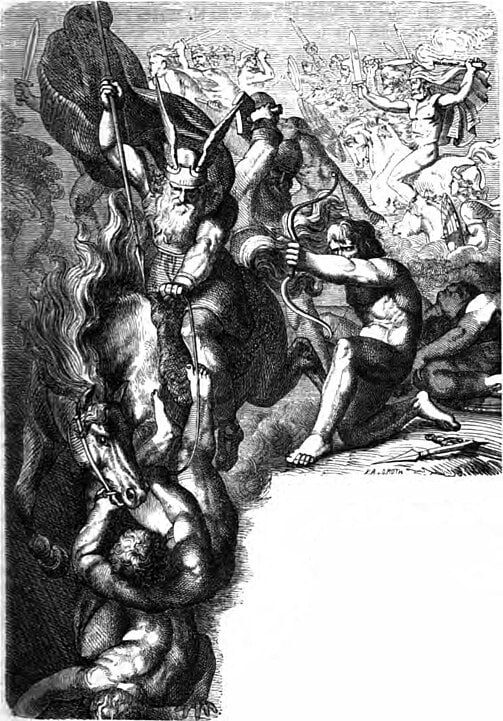
After peace was brokered (and Mimir was killed by the Vanir for suspected cheating) the two pantheons effectively merged. Njord, Freyr, and Freyja became honorary Æsir deities, and Njord and Freyr moved to live in Asgard with Freyr given rule over the elven realm, Álfheimr. Freyja is also often said to have moved to Asgard, however, she also still remained a ruler of her own realm – Fólkvangr.
The Marriage of Njord and Skadi
The mother of Njord’s children, Freyja and Freyr, is unspecified and is believed to have been Njord’s unnamed sister. Affairs and marriage in the family was common, as even the twins Freyr and Freyja were said to have been lovers at one point – the Vanir gods don’t seem to have been particularly opposed to incest.
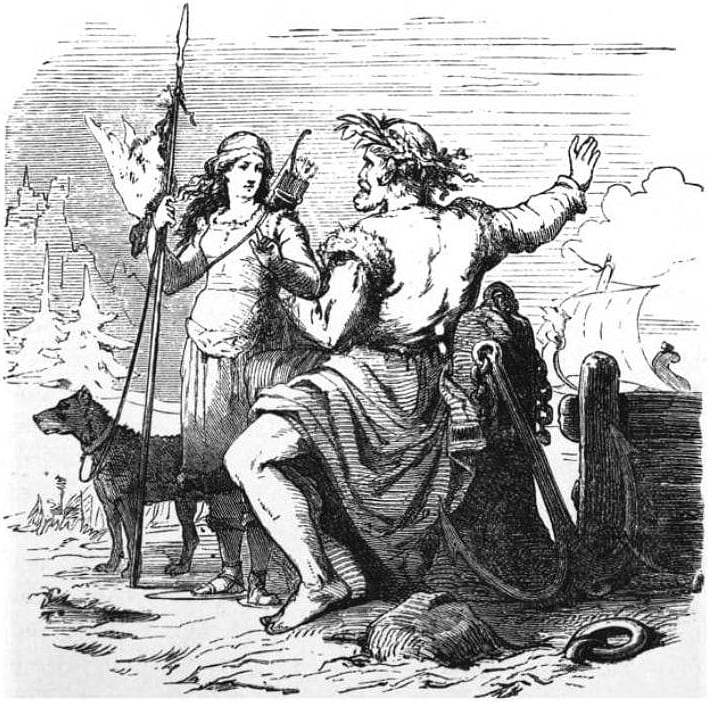
Once Njord moved to Asgard and became the resident god of the sea there, he also got into an unhappy marriage. Njord “accidentally” got married to the Norse goddess/giantess of the mountains, skiing, and hunting Skadi. The accidental part lies in the fact that Skadi demanded to be married to the god of the sun Balder as compensation for the Æsir killing her father, the giant Þjazi or Thiazi. Instead of Balder, however, Skadi accidentally pointed to Njord and the two ended up married to one another.
As the gods of mountains and the sea, Skadi and Njord didn’t have much in common. They tried living together up in Skadi’s mountain home but Njord didn’t like being far from the sea. They then tried living in Njord’s home Nóatún, “The Place of Ships” but Skadi wasn’t too fond of the arrangement. Eventually, the two started living separately.
Curiously enough, some sources mention Skadi as the mother of Freyr and Freyja which goes against all other sources mentioning the twins in the Æsir vs. Vanir War.
In the Heimskringla book Ynglinga saga, Skadi is said to have officially left Njord and married Odin.
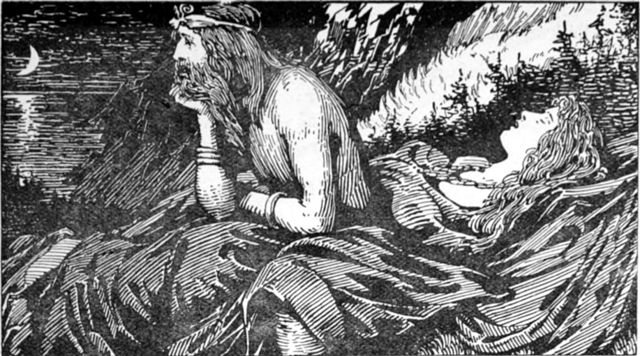
Symbolism of Njord
Most of the symbolism around Njord is as a god of the sea and wealth. Even though he was a peaceful Vanir deity, viking sea raiders worshipped Njord and invoked his name often. His participation in the Æsir vs. Vanir War isn’t particularly symbolic and his marriage to Skadi seems to only illustrate the stark contrast between Norway’s tall mountains and the raging sea around them.
Facts About Njord
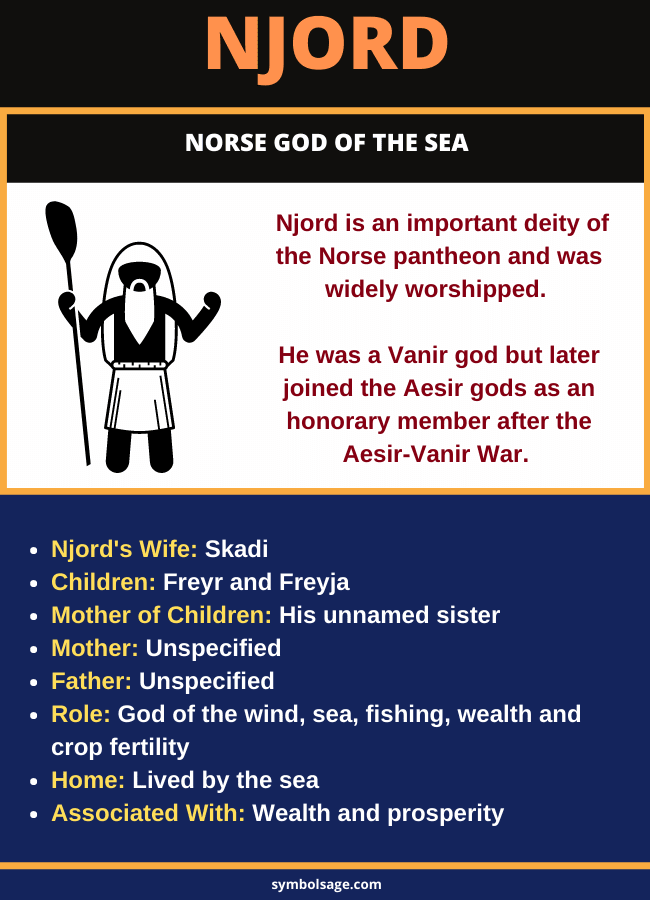
Importance of Njord in Modern Culture
Unfortunately, like most other Vanir gods, Njord isn’t often mentioned in modern culture. He was often depicted in old poems and paintings but he hasn’t been mentioned in any noteworthy literary or movie works in recent years.
Conclusion
While the surviving sources about Njord are scant, he appears to have been an important deity and one who was widely-worshipped and highly respected among the Norse people.





